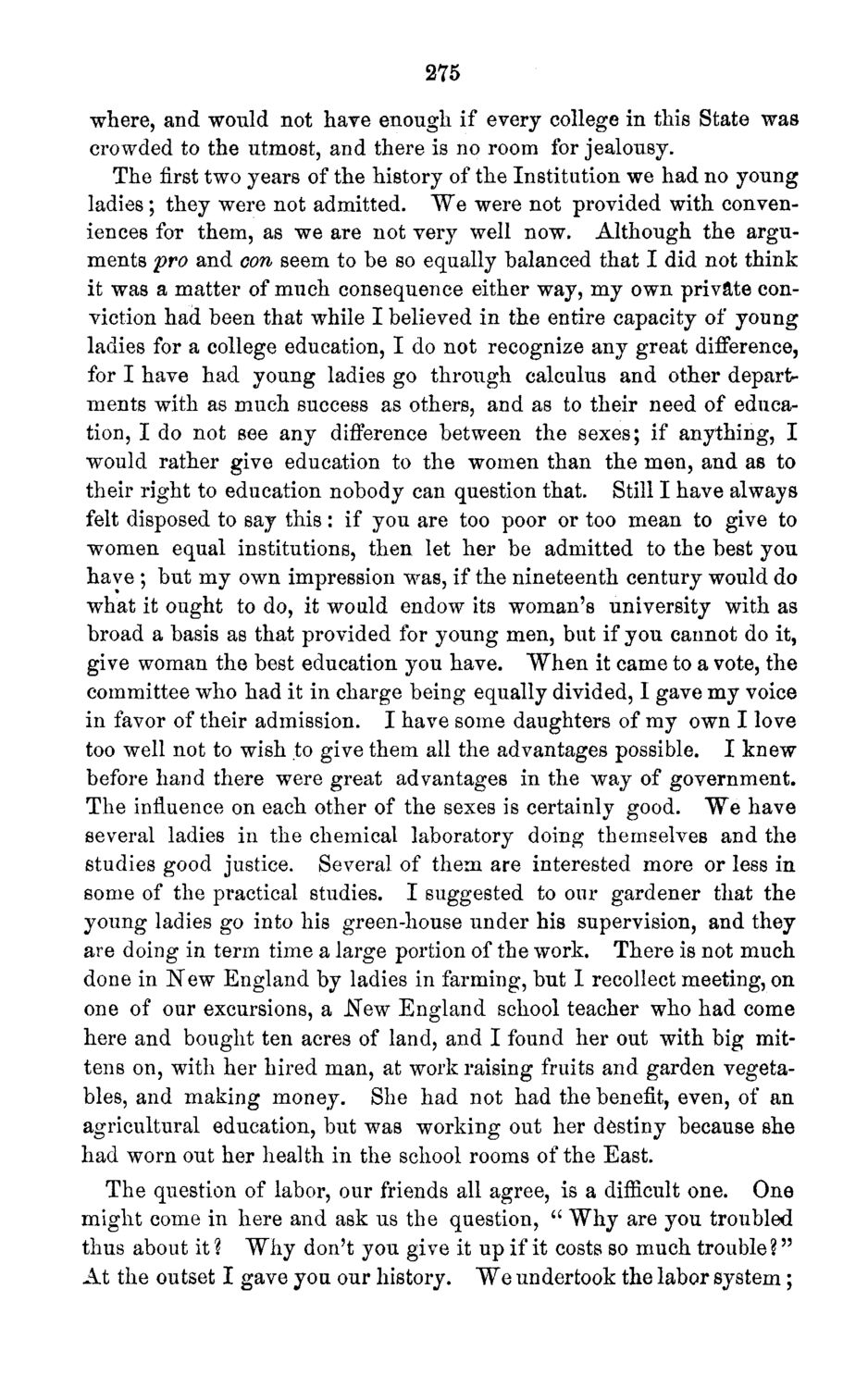| |
| |
Caption: Board of Trustees Minutes - 1871
This is a reduced-resolution page image for fast online browsing.

EXTRACTED TEXT FROM PAGE:
275 where, and would not have enough if every college in this State was crowded to the utmost, and there is no room for jealousy. The first two years of the history of the Institution we had no young ladies; they were not admitted. We were not provided with conveniences for them, as we are not very well now. Although the arguments pro and. con seem to be so equally balanced that I did not think it was a matter of much consequence either way, my own private conviction had been that while I believed in the entire capacity of young ladies for a college education, I do not recognize any great difference, for I have had young ladies go through calculus and other departments with as much success as others, and as to their need of education, I do not see any difference between the sexes; if anything, I would rather give education to the women than the men, and as to their right to education nobody can question that. Still I have always felt disposed to say this: if you are too poor or too mean to give to women equal institutions, then let her be admitted to the best you have ; but my own impression was, if the nineteenth century would do what it ought to do, it would endow its woman's university with as broad a basis as that provided for young men, but if you cannot do it, give woman the best education you have. "When it came to a vote, the committee who had it in charge being equally divided, I gave my voice in favor of their admission. I have some daughters of my own I love too well not to wish to give them all the advantages possible. I knew before hand there were great advantages in the way of government. The influence on each other of the sexes is certainly good. We have several ladies in the chemical laboratory doing themselves and the studies good justice. Several of them are interested more or less in some of the practical studies. I suggested to our gardener that the young ladies go into his green-house under his supervision, and they are doing in term time a large portion of the work. There is not much done in New England by ladies in farming, but I recollect meeting, on one of our excursions, a New England school teacher who had come here and bought ten acres of land, and I found her out with big mittens on, with her hired man, at work raising fruits and garden vegetables, and making money. She had not had the benefit, even, of an agricultural education, but was working out her destiny because she had worn out her health in the school rooms of the East. The question of labor, our friends all agree, is a difficult one. One might come in here and ask us the question, " Why are you troubled thus about it? Why don't you give it up if it costs so much trouble?" At the outset I gave you our history. We undertook the labor system;
| |